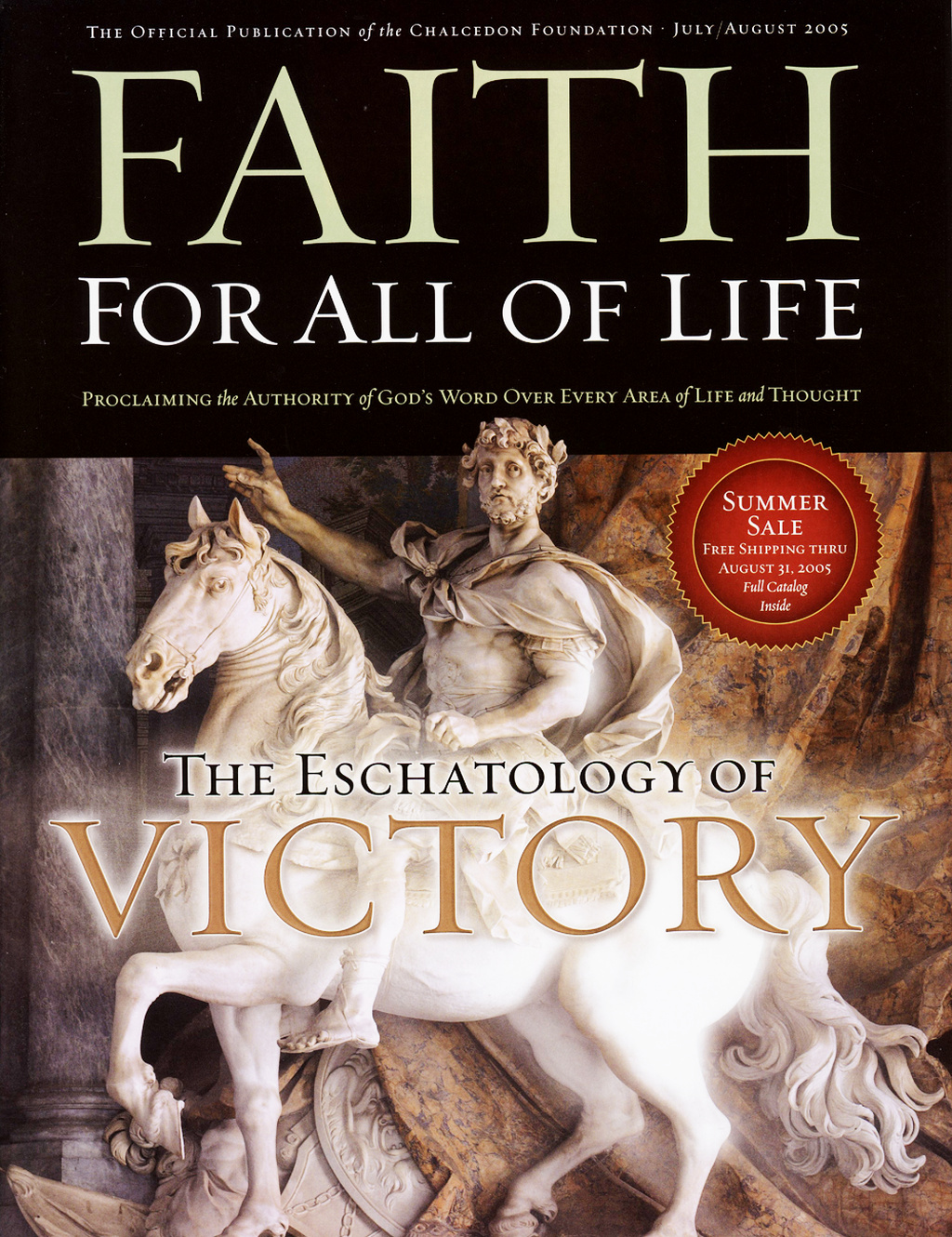
Magazine Issue
July/August 2005 Articles:
The Meaning of Eschatology

- R. J. Rushdoony

Eschatology and Psychology

- Mark R. Rushdoony
Chalcedon and the Study of Last Things
- Christopher J. Ortiz
Glossary of Eschatological Terms
- Kenneth L. Gentry, Jr., Th.D.
The Case for Historical Optimism
- Kenneth L. Gentry, Jr., Th.D.
Dispensationalism in the Light of Scripture
- Greg Uttinger
Practical Implications of the Postmillennial Hope
- William O. Einwechter
A Review of The Last Disciple
- Byron Snapp
The Impotence of Dispensationalism
- Joe Morecraft, III

“Arise! Shine, for Thy Light Is Come”
- Chris Hoops
A Review of Death of the Church Victorious
- Joseph M. Canfield
The Meaning of the “Millennium”
- Kenneth L. Gentry, Jr., Th.D.